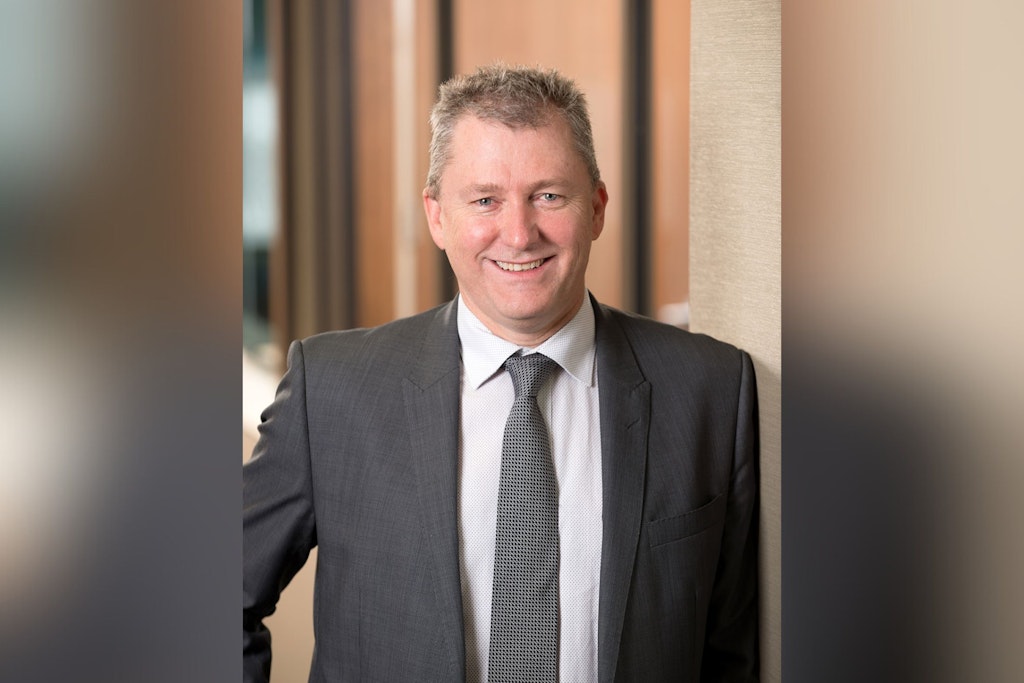How multidisciplinary care results in better quality of life
Last updated on 10 May 2024

Written by David Moran, CEO of Southern Cross Care (SA, NT & VIC) for the Hello Leaders Summer-Autumn publication.
Our society and its governments desperately need to treat health and well-being as we age with a similar importance to cigarette smoking cessation.
The benefits of not smoking are now obvious to the population at large due to concerted publicity campaigns and an excise-based tax on tobacco products.
The benefits of healthy ageing across the physical, social, psychological and environmental domains identified by the World Health Organisation, seem to be less obvious in the absence of such persuasion.
A healthy ageing approach can prevent and even reverse frailty, significantly compressing morbidity, helping to improve quality of life and reducing the need for sustained complex clinical care.
This is backed by the World Health Organisation’s The Global Status Report on Physical Activity 2022, which states “Older adults in particular benefit from regular physical activity to maintain physical, social and mental health, delay dementia, prevent falls, and realise the benefits of healthy ageing.”
A pathway to this is through earlier interventions of multidisciplinary care which at its core, is a collaborative approach between many different health professionals to deliver the best care for a client, or in the case of residential aged care, a resident.
When it works, multidisciplinary aged care has huge benefits in all health domains and can reduce falls, injuries, loneliness, medication use and hospitalisations.

True multidisciplinary care is not just about providing high-quality care that meets the medical and physical needs of aged care residents, but about improving their overall quality of life.
The Department of Health’s own scoping study on best practice multidisciplinary models of care in residential aged care homes, found the quality of life, physical activity and mobility, mood, and activities of daily living were all improved through the inclusion of allied health in models of care.
Meanwhile, a review by Aged Care Research & Industry Innovation Australia (ARIIA) found multidisciplinary care results in better rehabilitation, reablement and restorative care services outside of residential care.
In these home or community-based settings, multidisciplinary care enables older adults to “maintain their independent activities of daily living, and improve memory, executive function, functional status and everyday problem solving” – all important facets that contribute to quality of life.
Involving the experts
In home-based reablement services, ARIIA found multidisciplinary care was often provided by physiotherapists, occupational therapists and nurses. But why stop at three disciplines? Through experience, we know that exercise physiologists, dietitians, podiatrists, social workers and others should also be involved for a true overall health approach.
It is also important for a restorative care program to go beyond a person’s immediate physical needs and safety, to educate them about ongoing exercise routines, diet and lifestyle (including social) habits that will enable them to maintain their health beyond the life of the program.
Southern Cross Care’s Quality and Clinical Specialist, Dee-Anne Hull MPS, was recognised by her peers in July when she was named the 2023 Early Career Pharmacist of the Year at the PSA Symbion Excellence Awards.
In her role, Dee-Anne collaborates with a wide range of care and health professionals to support residents across our 17 residential care homes, where last year 97% of residents experienced good quality of life, as measured using World Health Organisation validated well-being indices.
Dee-Anne often tells me how much she loves working in a multi-disciplinary team because she knows that there is very seldom one cure for anything, or one way to help a resident achieve their goals.
Put it this way, a football team has a range of professional players in the side to fill specific roles, as well as a team of professionals on the sideline to support them. You would not ask the assistant coaches to take to the field and play. You would not ask the coach to run out on the field with a whistle to umpire for a quarter, although supporters might argue they would do a better job in this instance!
In the same way, we do not expect a physiotherapist to provide advice on whether a client is taking the right medication in the right amounts, or making the best nutrition choices for their lifestyle, but this is still guidance that residents need to achieve a good quality of life.
In the multidisciplinary care model, the physiotherapist provides the expertise they have trained for and works with other health professionals to deliver a holistic approach.
The physiotherapist, as well as each of the other professionals, can also provide the resident with advice on what they can continue to do to maintain their health and well-being, such as exercises to strengthen a particular muscle or prevent falls.
Health education from the team gives residents and clients the tools to improve their quality of life and maintain their well-being into the future. Ultimately for the resident or client, it may fulfil something more holistically important such as being able to have a picnic with grandchildren or simply being able to go to the toilet by themselves.
As confirmed by ARIIA, the multidisciplinary model of care needs to be well-defined to work. Each professional needs to understand how they fit into this model and what their role is, so they can refer to a colleague when it is in the best interests of the resident. Without this understanding, you risk having disjointed services that don’t deliver the care the person needs and may even negatively impact their quality of life.
Person-centred care and the impact of goals
Another important factor in delivering true multi-disciplinary care is that every service and support should employ person-centred care principles.
To ensure the focus of every team member is on person-centred care, the resident and in many cases their family members should be involved in setting goals. Meaningful goal-setting can help to set residents up for a better future and guide the professionals in how best to support that person.
It is vitally important to understand through appreciative enquiry techniques what life outcomes a person wants (e.g. prevent a move to residential aged care, enjoy a future holiday, make my own breakfast) as this will be a key to developing their health literacy and thereby motivation to commit to health rehabilitation and maintenance programs.
In order to achieve those meaningful goals and remain person-centred, the multidisciplinary team must conduct ongoing assessments with the client or resident so they can adjust their shared goals and set new ones. Regular case conferencing between multidisciplinary teams is essential to support this with ongoing input from residents and their families.
Healthy ageing or as we say at SCC, “Better for life” is the secret sauce to a healthy future less reliant on hospital wards, however, it needs significant promotion and financial incentivisation (to individuals and organisations) by all governments to realise the future benefit for our society.
With over 20 years of executive management experience in retirement village living and aged care, David Moran has also participated extensively with industry representative bodies Aged and Community Services and the Retirement Living Council of the Property Council.